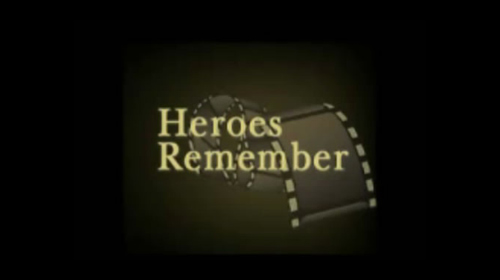We had lots of hardware
First World War Audio Archive
We had lots of hardware
Transcript
Mr.Butterworth as a young soldier.
To the left and right were seven bombs. And if we carried Stoke shells, they were hung on the side of our legs. Now we were pretty well covered and we had lots of hardware. A hand grenade is held in the hand with a lever attached to the detonator held by the left, by your thumb. As you heave the bomb, the lever flies off and the bomb is detonated and you count 1-2-3-4... explosion 5. With a Stoke shell, I have forgotten how we detonated the shell before throwing it in a dugout. Dugouts always was dug, for instance, the Fritz line came towards us. Ours, likewise, went towards Fritz. These dugouts are possibly 20-25 feet, steps down. Then there was an excavation that would hold possible 20-30 people and that, for instance, was our headquarters, as it was Fritz’s. Now, I go back now to when we would throw a Stoke shell down a dugout. Unless that dugout was terraced as a trench would be, and that Stoke shell would land at the bottom, that wouldn’t only kill all the people, every mouse and everybody in there. The concussion from the explosion contained within that area usually killed them all.Description
Mr. Butterworth describes the use of hand grenades and Stokes concussion shells.
James Howcroft Butterworth
James Butterworth was born in England and emigrated to Canada in 1907 with his Parents and syblings. His family moved to Alberta where they became farmers. Mr. Butterworth remembers an act of great sacrifice and kindness by a German farm family in Alberta which was to affect his attitude for life. He enlisted on October 27, 1915, with the 65th Battalion, Canadian Expeditionary Force, and joined the 46th Battalion. He served in France and was wounded in the foot and knee (accidental). He left the service on February 26, 1919, at rank of private. On June 21, 1926, Mr. Butterworth married Gertrude E. Wilson and they had three children. He was a farmer and worked as a grain buyer for United Grain Growers and later for the Veterans’ Land Act, both in Alberta. He retired in 1961 and settled in Calgary where he died on January 4, 1976.
Meta Data
- Medium:
- Video
- Owner:
- Veterans Affairs Canada
- Duration:
- 1:44
- Person Interviewed:
- James Howcroft Butterworth
- War, Conflict or Mission:
- First World War
- Location/Theatre:
- Europe
- Battle/Campaign:
- Ypres
- Branch:
- Army
- Units/Ship:
- 65th Battalion
- Rank:
- Private
- Occupation:
- Infantryman
Related Videos
- Date modified:



